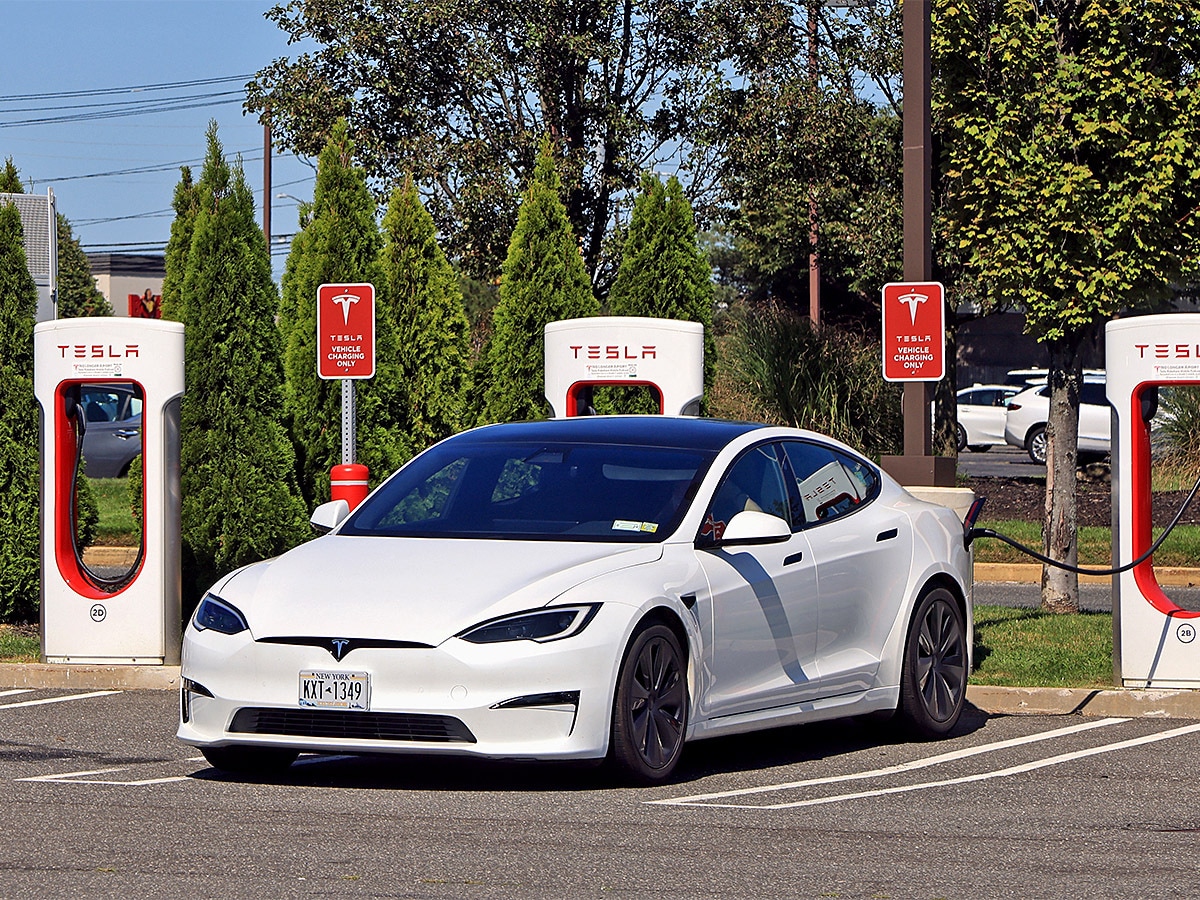Tesla’s Shanghai operations are back in full swing following a production roadblock earlier this year that saw the factory shut down for several weeks. The company has been delivering a record number of cars, but ongoing demand could be a concern.
Electric vehicle (EV) maker Tesla [TSLA] may signal a slowdown when it reports its third-quarter earnings on Wednesday 19 October.
Elon Musk’s company delivered a record 343,830 vehicles in the three months to the end of September, up from 241,300 in Q3 2021. But while these numbers were impressive, they still missed the consensus estimate of 359,162 from analysts polled by Refinitv. The miss sent the Tesla stare price down to a 52-week low of $204.16 on 14 October. The stock is down 29.8% in the past month and 41.8% year-to-date.
Explaining the delivery miss, Tesla said in a press release that growing production volumes mean it’s “becoming increasingly challenging to secure vehicle transportation capacity and at a reasonable cost during these peak logistics weeks”.
The Twitter [TWTR] takeover saga has also been an “albatross” around Tesla’s neck, Wedbush’s Dan Ives described. Speaking to CNBC last Friday, Ives said that investors are worried that some of the financing might fall through and Musk will have to sell more Tesla stock.
China demand in focus
The question investors will be asking is whether third-quarter earnings on Wednesday can put the brakes on the Tesla share price decline.
In its second-quarter earnings in July, Musk indicated that some demand may be weakening, but CFO Zachary Kirkhorn stressed that it was “not material”.
Though Q2 revenue climbed 42% year-over-year to $16.9bn and adjusted earnings per share were up 57% from Q2 2021, gross margins came in down 27.9% from 28.4% in the same period one year prior. Musk and Kirkhorn blamed the drop on increased costs as a result of shutting down its Shanghai production for much of the quarter.
The company was able to report an operating margin of 14.6%, which despite being down from the 19.2% operating margin reported in the previous quarter, was still “among the highest in the industry”. EV margins tend to fluctuate as carmakers ramp up production and try to capture more market share. Kirkhorn said on the Q2 earnings call that “Austin and Berlin ramp inefficiencies will continue to weigh on our margins for the balance of the year.”
Recent record delivery falls short
Tesla seems to have shaken off the worst of the Shanghai lockdowns by delivering a record 83,135 vehicles in September following an upgrade to its plant in the city earlier in the year. The 8% increase over the previous month indicates that supply chain constraints are easing. Nonetheless, Hargreaves Lansdown equity analyst Sophie Lund-Yates is cautious.
“We’ll be looking very closely for any signs of a growth slowdown in China. The region is home to some worthy competition – Tesla’s September sales were less than half of more than 201,000 vehicles sold by rival BYD [1211.HK]. Any commentary around this will be taken seriously by the market,” wrote Lund-Yates in her pre-earnings analysis last week.
Despite setting a record for its deliveries, the number still falls short of the 359,162 vehicles analysts had anticipated. And with the company delivering most of its EVs produced in China to Europe, onlookers are wondering whether sufficient demand exists within the country where production is based.
Pricing pressures
A major reason why BYD shifted more units than Tesla last month is that its models cost considerably less. Tesla has been raising prices to compensate for “crazy inflation”, as Musk put it on the Q2 earnings call, as well as higher input prices for raw materials.
The wait time from ordering a Tesla vehicle can be anytime between six months and a year, so the company has to anticipate what the probable rate of inflation will be. Investors will be listening out for any update on when it expects inflation and prices to come down.
“Tesla has a formidable fan-base, but they’re catering to a demographic that’s about to feel the burden of the worsening cost-of-living crisis. We worry not everyone will be able, or willing, to keep paying the price tag Teslas demand in the current climate,” argued Lund-Yates.
Analysts are bullish on the Tesla share price, with MarketBeat showing the stock has 19 ‘buy’ ratings, 10 ‘hold’ ratings and seven ‘sell’ ratings, for a ‘hold’ consensus among the 36 analysts polled. The consensus price target of $283.90 implies an upside of 29.43% from the most recent closing price.
Continue reading for FREE
- Includes free newsletter updates, unsubscribe anytime. Privacy policy





